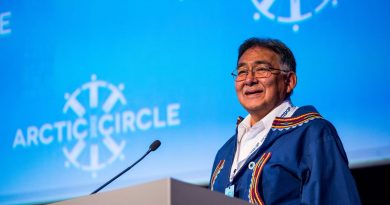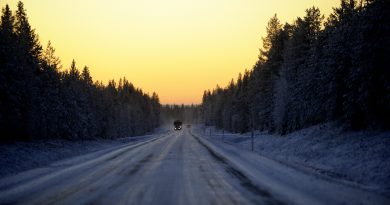Do Arctic villages need oil? Some Alaska tribal leaders say ‘no’
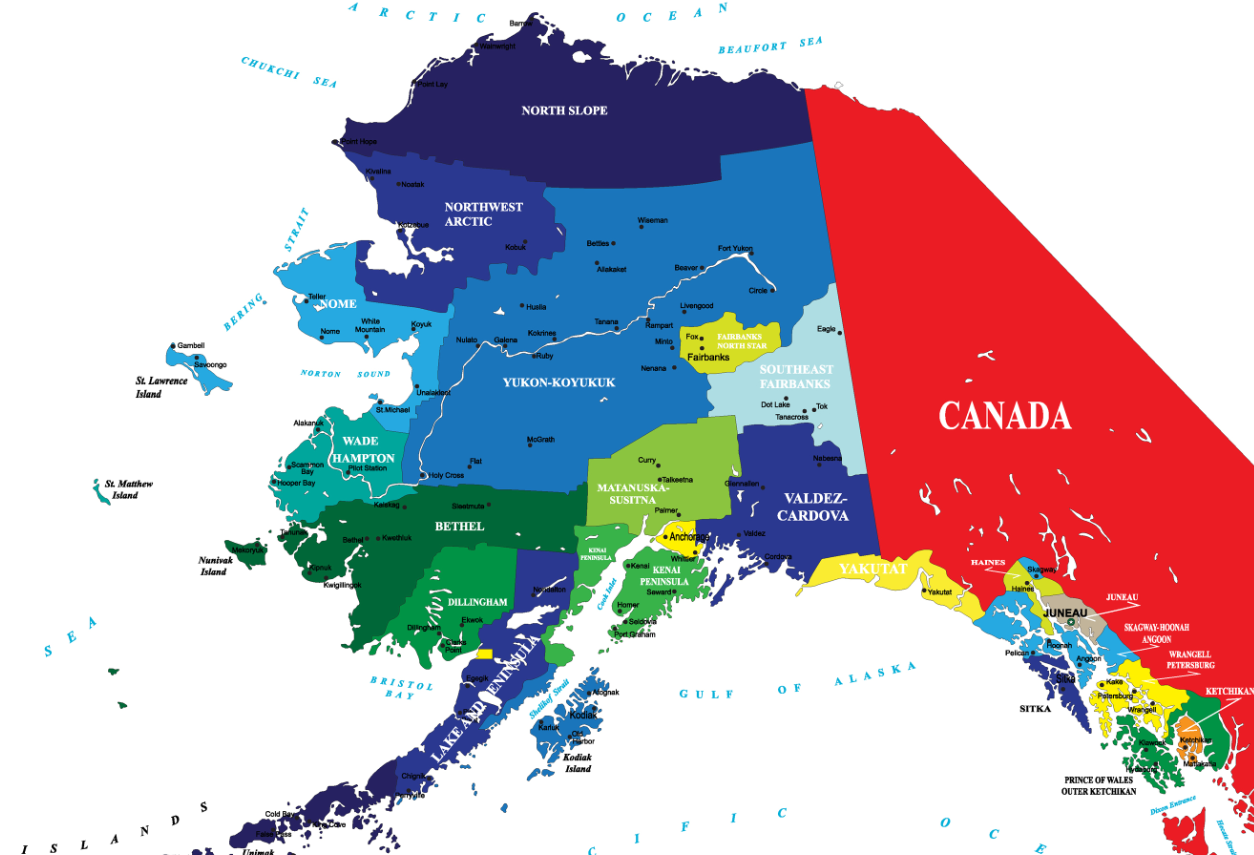
If oil companies are ever going to return to drill for oil in federal waters of the Arctic, they will need leases.
Sen. Lisa Murkowski complained at a hearing in Washington this afternoon that the leasing plan the feds are considering is too limited. She bolstered her position by calling on an Arctic Slope mayor, who testified that he and his neighbors need the industry. But other Arctic residents sat in the back of the hearing room, passionately opposed to off-shore drilling.
Personal testimonies
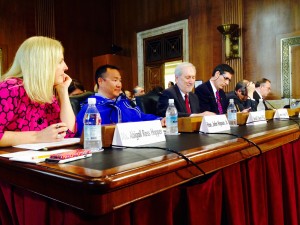
In Washington, both sides of any Arctic drilling dispute want to show they have locals on their side. John Hopson, Jr., a whaling captain and the mayor of Wainwright, on the Chukchi Sea, came out to make the case for federal leasing in the Arctic. Hopson is also a member of the North Slope Borough, which taxes the industry to provide services to the region.
“Every one of our eight communities is surviving on oil and gas money,” he said.
A snowmachine can cost $12,000, he said. A boat and motor might cost $20,000. Last year, Hopson said, he had to pay over $7 a gallon to operate his truck, his boat and his 4-wheeler.
“We need infrastructure to be able to tax so that we can employ people, so they have an opportunity to hunt,” he said. “The world is banking on saving animals without thinking of my life, my children’s life. Where are we going to live?”
Future of Alaska lease sales
The Bureau of Ocean Energy Management has proposed three lease sales in Alaska over the next five years, one each in the Chukchi, the Beaufort and Cook Inlet. But Abigail Ross Hopper, director of the agency, could not assure Murkowski that those sales would remain in the final plan.
“I think, chairman, it would be premature to make any statement about the fate of those Alaska sales in the final program,” Hopper said.
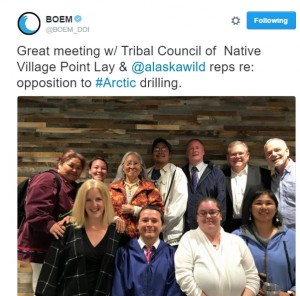
Murkowski says Alaska’s governor, the congressional delegation and the vast majority of Alaskans support offshore drilling. She zeroed in on a Tweet Hopper’s agency issued the day before. It shows the BOEM boss meeting with tribal council members from Point Lay. Although it’s just down the coast from Wainwright, this group of village leaders is ardently against off-shore drilling. They came to Washington to participate in a “Keep it in the ground” rally.
Murkowski said she didn’t have a problem with the picture the agency Tweeted, just the message.
“You Tweet in it that they … you clearly outline that they are opposed to drilling in the Arctic,” the senator said. “I looked at it and I said, ‘How do we not conclude that the die is already cast and that your agency has already decided what it is you’re going to be doing?’”
Hopper said she didn’t write the Tweet, but she’d seen it.
“I’m sorry if you took that impression from it,” she said.
Point lay tribal members question need for oil industry

The Point Lay delegation had an appointment to meet with Murkowski after the hearing. Some said they were surprised their visit, hosted by an environmental group, seemed to tick people off.
Tribal council member Cilia Attungowruk and Jane Tukrook are both raising children in Point Lay to respect traditional ways. They say offshore drilling is a threat to the environment and they dispute that they need the oil industry to support their subsistence lifestyle.
“We don’t have to have money to go out there. We can go out there on foot and with our own bare hands and still get what we need to eat,” said Attungowruk.
“Because that’s exactly how our ancestors did it in the past,” Tukrook said. “It worked for them. So what’s to say that it won’t work for us.”
Tukrook has a job. She’s Point Lay’s tribal administrator. She says a switch to renewable energy technology might produce more paychecks in Point Lay.
Related stories from around the North:
Canada: Trudeau and Obama’s Arctic endeavours, Deutsche Welle Ice-Blog
Finland: Experts question Finland’s energy decisions, data, Yle News
Norway: Nobel Peace Prize winners call for halt to Arctic drilling, The Independent Barents Observer
Russia: Spilled oil spreads into more rivers, fuels popular discontent, The Independent Barents Observer
Sweden: Will Sweden be able to produce enough energy in the future?, Radio Sweden
United States: Shell isn’t the only oil company leaving Alaska’s Arctic, Alaska Dispatch News


